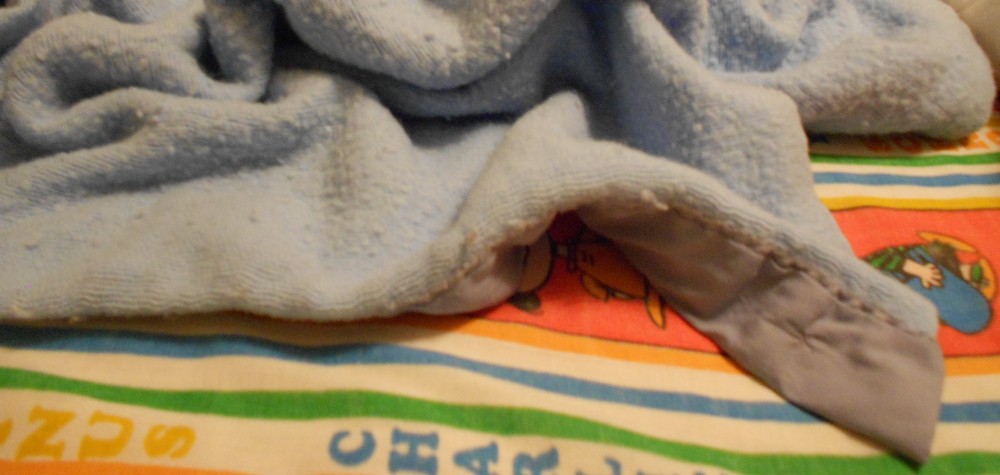If somebody were to quit using their insulin, or stop taking their heart medication, would a company use that situation as a humorous way to try and sell soft drinks, power tools, or airline tickets?
In recent months, I’ve repeatedly heard a radio commercial involving a married couple discussing a particular service, which is supposed to be so great, at such an unbelievable price, that on hearing about it, the wife asks the husband, “Are you off your meds?”
Sadly, “off your (his/her/my/their) meds” is one of those expressions that is used so casually and so often that it is treated as a perfectly acceptable phrase to describe someone who is viewed as irrational, or who is behaving in any way that is deemed unacceptable by the person using the expression. If the saying weren’t so accepted, it wouldn’t be used as a joke in a radio ad, in a way that the advertisers assume will cause no offense to anyone, and will actually draw people to the company that paid for the ad.
At base, when people use the phrase “off your meds” to take a dig at someone, they are indicating that they believe the target of that phrase is delusional, or foolish in some way that is indicative of mental illness. Stripping that phrase down to its core, using “off your meds” as a joke is essentially saying that mental illness is something to be laughed at, and people who use medications to manage mental illness are appropriate targets of ridicule. In such a context, the symptoms of mental illness that might lead to a diagnosis or to a prescription for psychiatric medications are symptoms that make a person entertaining, or perhaps annoying, in such a way that it is perfectly acceptable to mock them.

Hey, you know what would be really funny? Debilitating psychiatric symptoms!!
For people working in the mental health field, and for a number of connected disciplines, such as medical practice or law enforcement, it is common to end up in situations where questions about a person’s psychiatric medications must be asked: “Are you prescribed any medications?,” “Have you been taking your medications?,” “Is your prescriber aware?,” and so on. Such questions are not jokes to be taken lightly, but queries to get a read on potentially serious problems.
Mental illness that is being treated with medication is much like any physical condition being treated with medication, in that it is ideally guided by a skilled practitioner with a well-informed client, and with the client’s best interests in mind. If medication is not being used properly, as directed by the prescriber, it becomes nearly impossible to know if medication is effective for a client, or if adjustments need to be made, or if new strategies altogether need to be employed.
So, what exactly does it mean to be “off one’s meds”? The answer to that question depends on the nature of a particular mental illness, the severity of the illness, and a huge variety of factors in the life of the person taking the medications, much the same as it is for any physical illness being treated with medications. Some mental illnesses may require use of medications over extended periods—years, or even decades—just to ensure a client’s ability to engage in daily functions. Other mental illnesses may be subject to cycles where medications can be used over much shorter periods, when symptoms intensify, rather than as a long-term, critical part of everyday routines.
For some, being “off their meds” is the difference between stabilization and falling into debilitating psychiatric symptoms which are likely to lead to an inability to manage even simple tasks. Intentional, or unintentional self-harm leading to hospitalization may be consequences of people being “off their meds.” For people falling into this most severe category, maintaining a medication regimen without both professional and personal supports can be extremely difficult.
People with chronic, severe mental illness are also most likely to repeatedly go off their medications without warning, and without informing their friends, families, or professional supports of their decisions. They are likely to do this with the thought that they are capable of handling their symptoms regardless of signs to the contrary. Many who fall into the category of chronically mentally ill are also at risk of pursuing self-medication via alcohol, street drugs, or by tampering with the dosages of prescribed medications.
For people who need medications to manage psychotic symptoms, going “off their meds” can make a return to those medications extremely difficult. Imagine, for example, trying to convince a client suffering from paranoid delusions that they need to take medications when that client views everyone urging the use of such medications as conspirators in a plot to poison and/or control that client. In such cases, the unfortunate outcome may be that mental health conditions need to deteriorate to the point where the clients can be involuntarily hospitalized before they can get the help they need.
At the same time, for a number of people struggling with mental illness, being “off their meds” is a perfectly reasonable goal, one which they may achieve after a brief period of using medications, or one which they may find they need to pursue multiple times throughout their lives. Such people may reach a point where they feel they have learned enough coping skills and health strategies to ease off their medications, as they try to maintain a healthy balance of the various elements in their lives, with the support of family, friends, and professionals. Such attempts to live medication-free can lead to careful, deliberate lifestyle choices that allow for long-term, medication-free, satisfying relationships and careers. But such attempts can also lead to disappointments, for example, when stressors become overwhelming, and people find that they need the support of medications to achieve periods of stabilization when things are at their worst.
For the purposes of full disclosure, I will say that I feel that the use of psychiatric medications without the support of counseling is almost always a mistake. Medications without other professional mental health supports can keep clients from “checking in,” both with themselves, and with professionals who can help clients establish and/or strengthen coping skills. Since it is becoming less and less common for prescribers to have the time for more than brief check-ins with clients, having mental health supports beyond just medication is crucial.
Let me also say that I know that people who call attention to such language issues are frequently accused of lacking a sense of humor, or of being overly sensitive. Those who make such accusations are also quite fond of demeaning people for taking offense at something that is “just a joke.” And, no doubt, there are also those people who fall into the potentially-offended group (people on psychiatric medications) who will say that phrases like “off your meds” do not offend them, because they have a sense of humor.
To such people, I say, go ahead and say what you want to say. I can’t stop you, and I agree it is your right to do so. But just know that you have a choice to say, or to not say, things that are potentially offensive. If you feel that it is more important to make jokes about people being “off their meds” than it is to maybe find a different way of expressing yourself, then just don’t demand that others not get offended by your words. You don’t have any more a right to expect a particular reaction to your words (especially after the potential offense has been pointed out) than anybody has a right to tell you that you can’t say something.
In the United States, we have a convoluted relationship with psychiatric medications, counseling, and mental illness in general. We rail against people wanting to take pills to solve their problems, then turn around and rail against people who don’t take medications they need. We say people need counseling to work out their issues, but then condemn counseling as something for people who are too weak to manage their own problems. And we simultaneously blame untreated mental illness for heinous events, while laughing at people with untreated mental illness.
So how about if we agree that psychiatric medications, when used appropriately, can have a great many benefits, rather than shaming people who use them? How about if we agree that counseling, entered into in good faith between practitioners and clients, is something that can be of great help? And how about if we agree that you don’t get to blame untreated mental illness for gun violence (which is a ridiculous argument) and then turn around and laugh about how funny untreated mental illness is (which is an asinine thing to do)?










